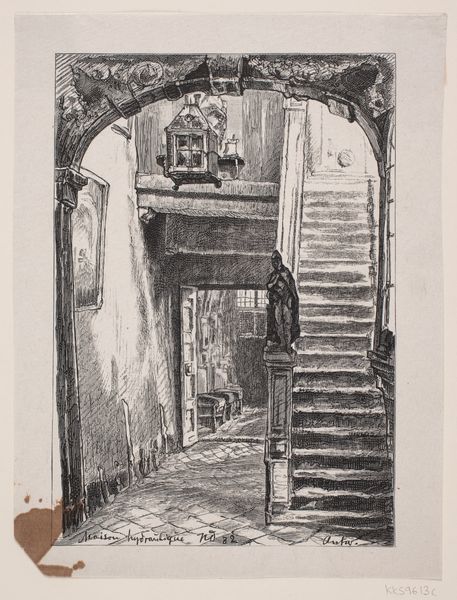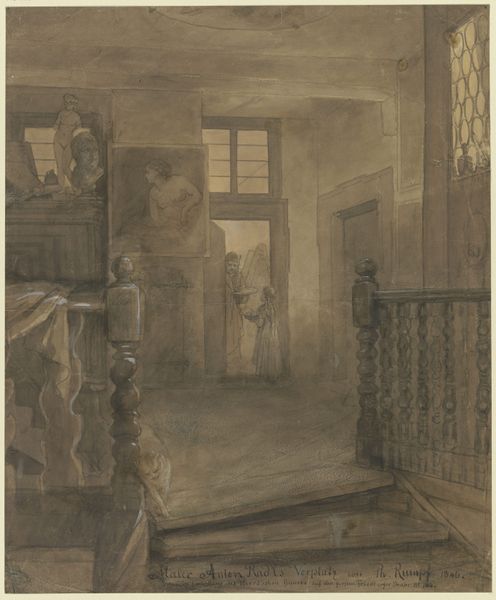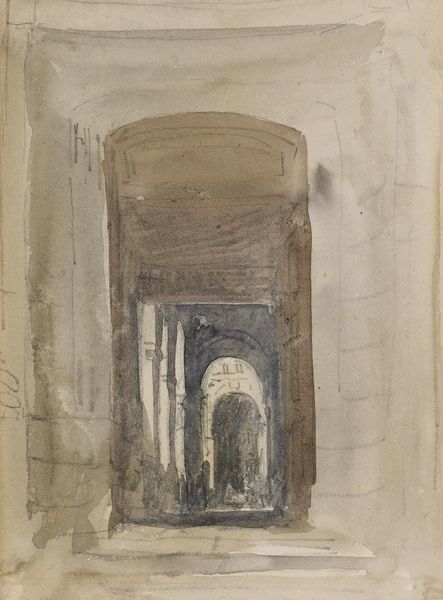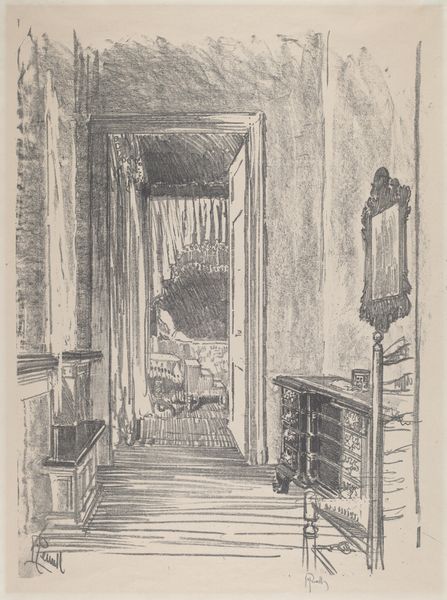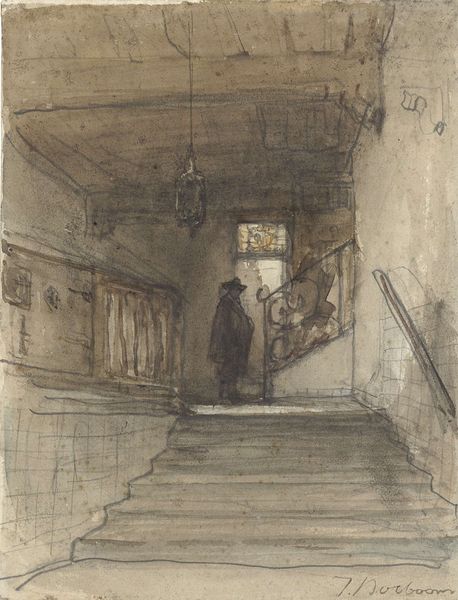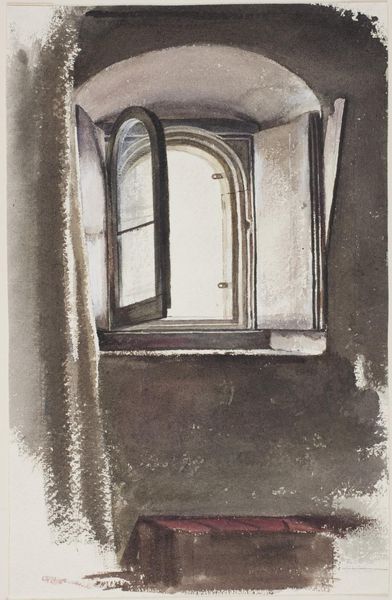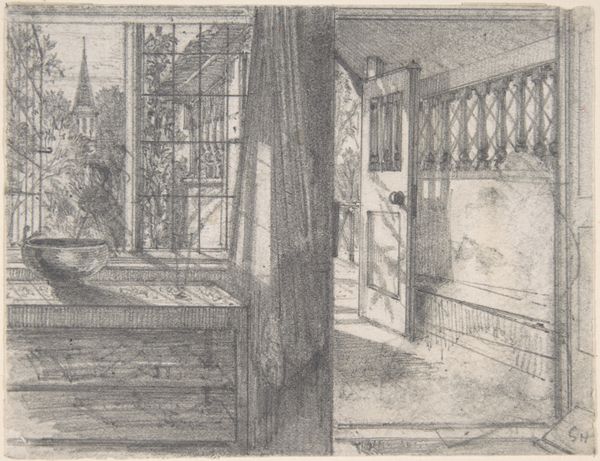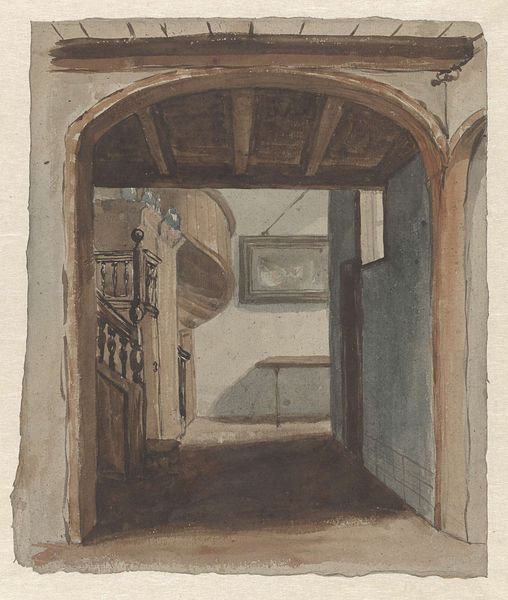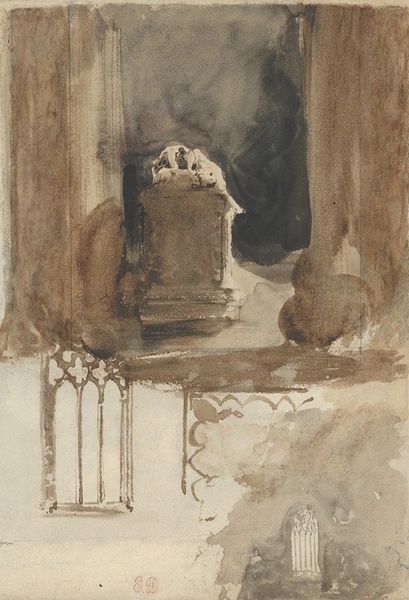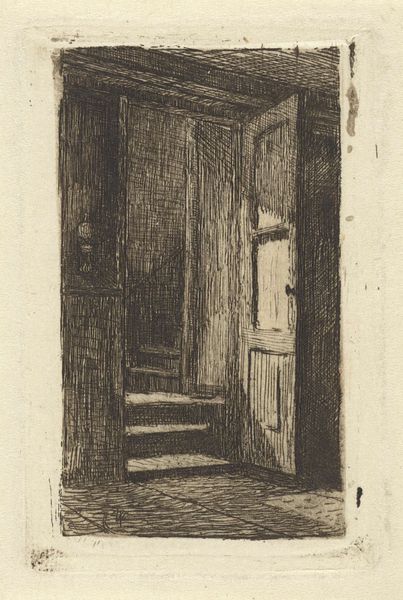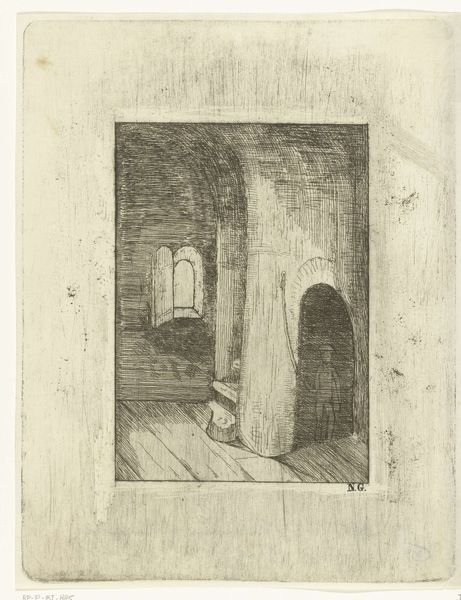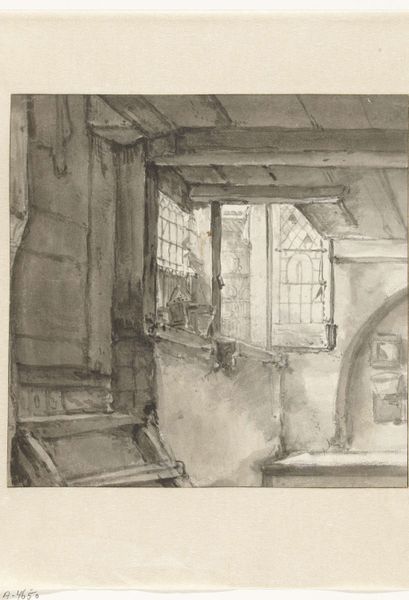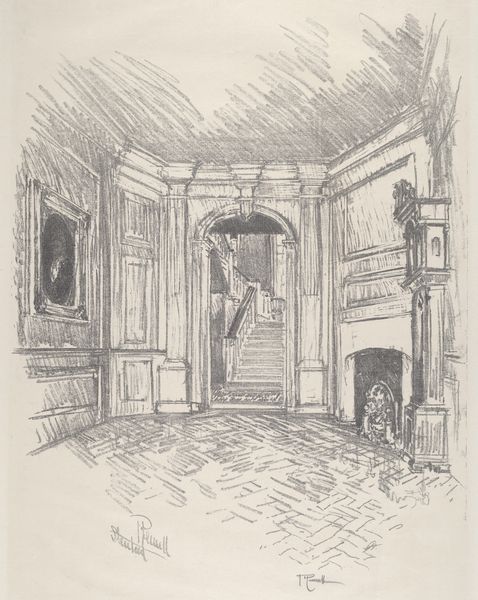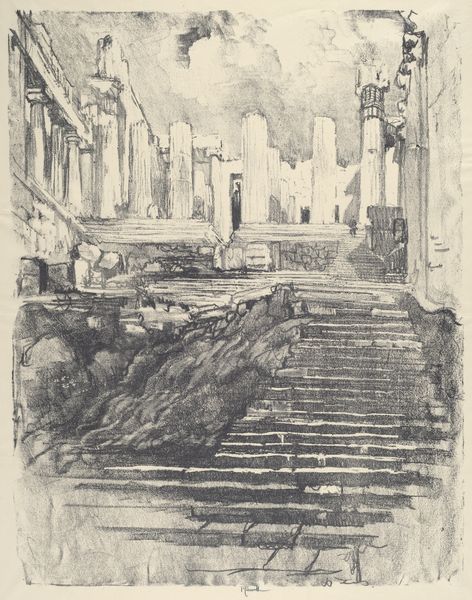
De trap in het Prinsenhof te Delft, waar prins Willem I werd vermoord in 1584 1827 - 1891
0:00
0:00
johannesbosboom
Rijksmuseum
drawing, charcoal, architecture
#
drawing
#
dutch-golden-age
#
pencil sketch
#
landscape
#
perspective
#
charcoal drawing
#
charcoal
#
architecture
#
realism
Dimensions: height 280 mm, width 170 mm
Copyright: Rijks Museum: Open Domain
Curator: Hmm, chilling. Almost oppressive, the way the shadows seem to cling. Editor: That's a good word for it. What we're looking at is Johannes Bosboom's drawing from the 19th century, "The staircase in the Prinsenhof in Delft where Prince William I was assassinated in 1584," currently held at the Rijksmuseum. Curator: Stairs leading to...what, oblivion? The composition funnels you right into that stark light at the top, like a reluctant participant in some dark drama. Is that melodrama in pencil form? Editor: The location is significant, of course. Bosboom depicts the very staircase where William the Silent was murdered, a pivotal event in Dutch history. It’s not just a staircase, it’s a stage for a national tragedy. The association gives the drawing that heavy weight you're feeling. Curator: Oh, absolutely. Knowing that context shifts the entire piece. The window…it becomes less about illumination and more a spotlight on a historical abyss. The charcoal smudges read as ghosts of the past lurking. Editor: Bosboom was working almost three centuries after the assassination. His choice of a humble medium like charcoal or pencil creates a deliberate sense of immediacy but from a reflective historical distance, allowing the viewer a seemingly intimate look into this national drama, without being lurid or excessively dramatic. It acknowledges a shared history and its emotional impact. Curator: Intimate, yet remote. Perfect way to put it. There's a starkness here that modern renderings of historical moments often lack. I appreciate how Bosboom trusts the shadows to convey the dread. Editor: He uses shadow and perspective to place you right there in that moment, grappling with Dutch identity and this trauma. Curator: And it works beautifully. For all its simplicity, the emotional heft lingers, it speaks volumes about memory. Editor: Indeed. It’s a reminder that places themselves bear witness, even centuries later.
Comments
No comments
Be the first to comment and join the conversation on the ultimate creative platform.
